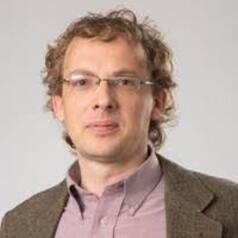
Isaac Kamola
Associate Professor of Political Science, Trinity College
Isaac Kamola is an associate professor of political science at Trinity College, Hartford, CT. His research examines the political economy of higher education, critical globalization studies, and African anticolonial theory. He is author of Free Speech and Koch Money: Manufacturing a Campus Culture War (with Ralph Wilson, 2021) and Making the World Global: US Universities and the Production of the Global Imaginary (2019). His scholarly work has appeared in International Studies Quarterly, International Political Sociology, British Journal of Politics and International Relations, Millennium, Journal of Academic Freedom, African Identities, Journal of Higher Education in Africa, Third World Quarterly, Alternatives, Cultural Politics, Polygraph, and Transitions as well as numerous edited volumes.
Isaac is the creator of Faculty First Responders, a program that monitors right-wing attacks on academics and provides resources to help faculty members and administrators respond to manufactured outrage. And he currently serves as the director of the Center for the Defense of Academic Freedom at the American Association of University Professors (AAUP).
Less ![]()
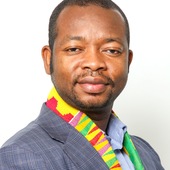
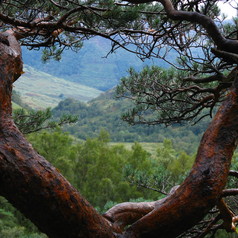
Isaac Tabner
Senior Lecturer in Finance, University of Stirling
I have maintained an active personal interest in stock market investment since the BT3 privatization in 1993. Much of my research and teaching is motivated and informed by practical experience as a private investor: both through the dot com bubble and collapse, as well as, the more recent financial crisis. I am particularly interested in the practical applications of investment theory and research for individual, as well as for institutional investors.
I was awarded the Diploma in Financial Planning (DipPFS) in 2010, the CFA designation in 2003, the ASIP in 2002 and the IMC in 1998. My PhD thesis titled "The relationship between concentration and realised volatility: an empirical investigation of the FTSE 100 Index January 1984 through March 2003" was completed at the University of Stirling in 2004 and in 1999 I was awarded the MSc with distinction in investment analysis from the University of Stirling.
I have been at the University of Stirling since September 1998. I was appointed as a lecturer in finance in September 2003. Prior to this, I was a PhD student, teaching assistant, research assistant and MSc student. Before studying finance and investment, I worked as a marine biologist in Canada, after graduating with an upper second in marine and environmental biology from the University of Saint Andrews.
Less ![]()
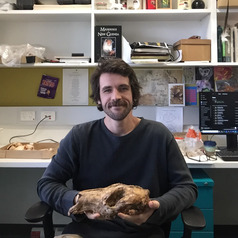
Isaac A. R. Kerr
Research Assistant at Flinders University Palaeontology Laboratory, Flinders University
In early 2023 I received my PhD with a thesis on the systematics and palaeoecology of the giant fossil kangaroo genus Protemnodon. My recent research focusses on the fossil kangaroos of New Guinea.
I undertook a Bachelor's Degree in science majoring in evolutionary biology at the University of Adelaide. My Honours project, also at Adelaide Uni, was on the fossils, evolution and biogeography of a peculiar genus of vine, Ripogonum, from New Zealand and eastern Australia.
Less ![]()
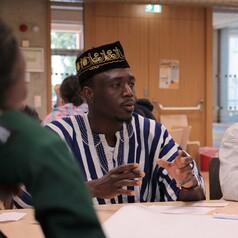
Isaac Abotebuno Akolgo
PhD Candidate, Bayreuth International Graduate School of African Studies
Isaac Abotebuno Akolgo is a PhD candidate and junior fellow at the Africa Multiple Cluster of Excellence, University of Bayreuth. He is currently completing his dissertation on the political economy of money and finance in Ghana.
Less ![]()
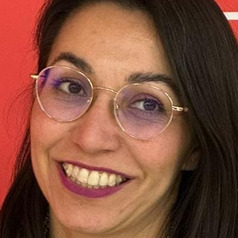
Isabel Estrada
Associate Professor of Innovation & Strategy, University of Groningen
Isabel Estrada Ph.D, is an Associate Professor of Innovation and Strategy at the University of Groningen. She is an expert in collaboration between organisations and has extensively studied the governance of 'particularly challenging' collaborations: collaborative innovation, alliance-to-acquisition transitions, competitor collaboration, public-private projects and multi-partner alliances. Besides publishing in leading academic journals in the management field, Isabel seeks to connect for impact (e.g. expert consultation, guest lectures). She has served in the Editorial Review Board of Journal of Management Studies and as a Co-Chair of the Strategic Management Division of the European Academy of Management, where she currently serves as Development Co-Chair.
Less ![]()
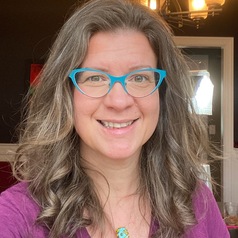
Isabel Gauthier
David K. Wilson Professor of Psychology, Vanderbilt University
I have the privilege to head the Object Perception Lab in the Psychology Department at Vanderbilt University.
I think of myself as a cognitive neuroscientist – I am interested in how we perceive, recognize and categorize objects (such as faces, letters, cars and novel objects such as Greebles). My laboratory is interested in the structure of individual differences in perceptual abilities. We also seek to understand perceptual expertise – defined as becoming very good at making perceptual judgments that started off as being very difficult – and investigates the behavioral and neural changes that occur during its acquisition.
Less ![]()
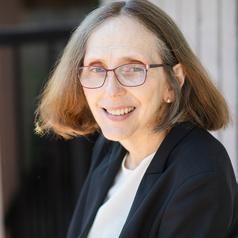
Isabel Grant
Law Professor, Allard School of Law, University of British Columbia
Isabel Grant is a professor of law at the Allard School of Law. She is a member of the British Columbia bar and a Fellow of the Royal Society of Canada.
Less ![]()

Isabel Key
PhD Candidate, Marine Ecology, The University of Edinburgh
For my PhD I am investigating the biodiversity of seagrass meadows in Scotland, looking across trophic levels and bridging marine and terrestrial realms. I am interested in novel approaches to monitoring biodiversity, including using semi-aquatic predators such as birds and otters as indicator species, and trialling acoustics to monitor fish and crab activity. I have previously worked on nature-based solutions at the University of Oxford, and hold a bachelors degree in Natural Sciences from the University of Cambridge.
Less ![]()
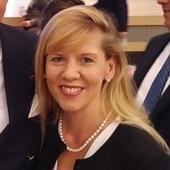
Isabel Pedersen
Professor of Communication and Digital Media Studies, Ontario Tech University
Less ![]()
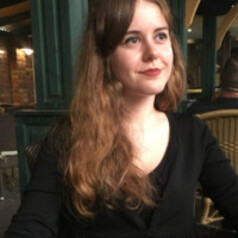
Isabel Argüelles Rozada
Investigadora predoctoral en Filosofía, Universidad de Oviedo
Isabel Argüelles Rozada es graduada en Filosofía por la Universidad de Oviedo (2013-2017), habiendo recibido el Premio Fin de Grado. Ha ejercido como profesora de Filosofía en Bachillerato. Actualmente es contratada predoctoral en el departamento de Filosofía de la Universidad de Oviedo (2021-), dentro de la rama de Investigaciones Humanísticas. Desarrolla su tesis doctoral analizando desde una perspectiva filosófica la idea del flâneur partiendo del pensamiento de Walter Benjamin e identificando sus influencias simbólicas y estéticas, con especial atención al medio cinematográfico.
Less ![]()
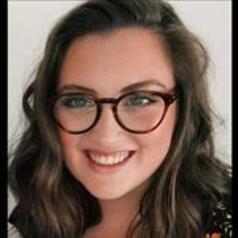
Isabella Currie
PhD candidate, La Trobe University
Isabella Currie is a PhD student and sessional academic at La Trobe University. Her research focuses on the Wagner Group and its role in international relations. Her research interests include foreign interference, authoritarian regimes, security, private and semi-state actors, and geopolitics.
Less ![]()

Isabella Gagliardi
Professeur Associé d’Histoire du christianisme, Fondation Maison des Sciences de l'Homme (FMSH)
Isabella Gagliardi est Professeur Associé d’"Histoire du christianisme" à l'Université de Florence. Depuis juillet 2021 elle est membre associé du Laboratoire d'études sur les monothéismes - UMR 8584 et depuis octobre 2017 senior fellow au Medici Archive Project. Elle a collaboré à plusieurs projects de recherche nationaux et internationaux. Elle est également chercheuse invitée du programme DEA | Directeurs d'études associés de la Fondation Maison des Sciences de l'Homme (FMSH).
Less ![]()
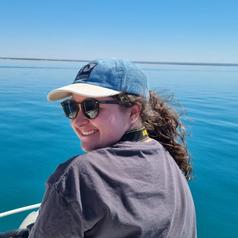
Isabella Reeves
PhD Candidate, Flinders University
Isabella is PhD Candidate at Flinders University in conservation genomics and evolutionary ecology. She specialises in marine wildlife genomes, particularly cetaceans.
Less ![]()
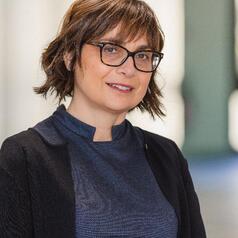
Isabella Soscia
Professeur de marketing, SKEMA Business School
Le Dr Isabella Soscia est professeur titulaire de Marketing à SKEMA Business School. Ses recherches portent sur la communication marketing et le comportement des consommateurs, avec un accent particulier sur les émotions liées à la consommation.
Less ![]()
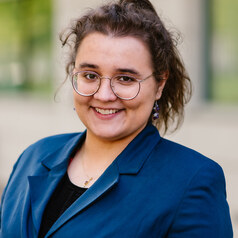
Isabelle Avakumovic-Pointon
PhD Student in History, University of British Columbia
Isabelle Avakumovic-Pointon works for the PROUD Project as a Research Assistant. She is PhD student in the Department of History at the University of British Columbia (UBC) researching disability history. She has an MA in European and Russian Affairs from the Centre for European, Russian, and Eurasian Studies in the Munk School at the University of Toronto. Isabelle also has a BA in Honours history from UBC and a Bachelors from the Institut d'études politiques de Paris. Isabelle has been a research assistant for the PROUD Project at the University of Toronto Scarborough since 2021.
Less ![]()

Isabelle Huning
PhD Candidate in the School for Business and Society, University of York
I am interested in the political economy of skill formation, welfare institutions and institutional change, as well as comparative social and education policy. My PhD research at the University of York shifts the focus from formal institutions to the narratives surrounding apprenticeships, considered to have grown over decades and centuries. I use state of the art quantitative methods that rely on a large amount of text as data to understand how narratives shifted across different institutional and cultural settings, and their impact on the institutional paths towards or away from traditional apprenticeships.
Prior to starting my PhD, I worked in the German vocational education sector for seven years, first as a trainer and social worker, then in quality management.
Less ![]()
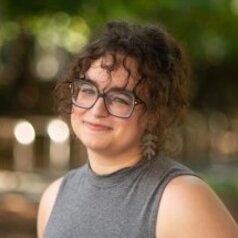
Isabelle Langrock
Postdoctoral researcher, Le Centre de Recherche sur les Inégalités Sociales, Sciences Po
I am currently a postdoctoral researcher at Le Centre de Recherche sur les Inégalités Sociales (The Center for Research on Social Inequalities) at Sciences Po in Paris, France. Here, I work with Dr. Jen Schradie and study the different information environments of the US and France.
I received my Ph.D. from the Annenberg School for Communication at the University of Pennsylvania in May 2023. My Dissertation, “The Irony of Openness: Gender Inequality in Self-Governed Knowledge Systems” built a framework for investigating gender gaps across different forms of open knowledge production, including Wikipedia and Open Source Software. My work speaks to the inter-disciplinary domains of digital governance and organization, information environments, and social activism.
Less ![]()
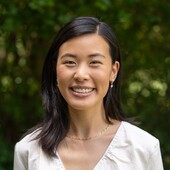
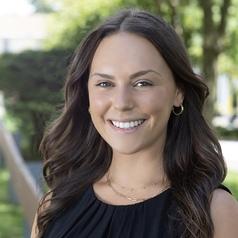
Isabelle Perry Newman
Medical Student, School of Medicine, University of Virginia
Isabelle Newman is currently a first year medical student at University Virginia School of Medicine. She has been working with the Reproductive Politics Lab with Vanderbilt University since 2021, and is interested in reproductive health.
Less ![]()
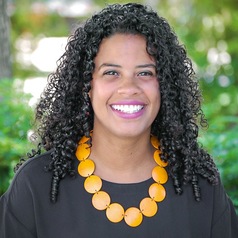
Ishara Casellas Connors
Assistant Professor, Public Service and Administration, Texas A&M University
Dr. Ishara Casellas Connors joined the Bush School’s Department of Public Service and Administration in 2021. Dr.Casellas Connors has an extensive background in higher education administration and in diversity and equity policy, having previously served as Associate Director for the Institute for Democracy and Higher Education at Tufts University and as Assistant Dean for Diversity at Texas A&M University’s College of Geosciences.
Casellas Connors holds a PhD from Boston College in Higher Education, an MA from Columbia University in Higher and Postsecondary Education, and a BA from Clark University in Business Management. Dr. Casellas Connors’ research examines issues of equity higher education, focused on state and institutional policy related to minority serving institutions. This work addresses the organizational efforts to address diversity and equity within complex policy and organizational landscapes. Finally, Dr. Casellas Connors considers the experiences of displaced learners, such as refugee and asylum students, in U.S. higher education to frame how state and institutional policy create a context for student success.
Less ![]()
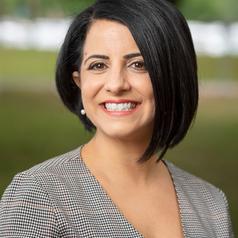
Isis Artze-Vega
College Provost & Vice President for Academic Affairs, Valencia College
Isis Artze-Vega, Ed.D. serves as college provost and vice president for academic affairs at Valencia College in Central Florida, a Hispanic-Serving Institution that serves about 70,000 students annually and has long been regarded one of the nation’s best community colleges. Prior to joining Valencia, Isis served as assistant vice president for teaching and learning at Florida International University, before which she taught English composition and enrollment management at the University of Miami. Isis is the editor and lead author of the Norton Guide to Equity-Minded Teaching and co-author of Connections are Everything: A College Student's Guide to Relationship-Rich Education.
Less ![]()

Isla Graham
I'm a research fellow in the School of Biological Sciences, based at the University of Aberdeen's Lighthouse Field Station.
My work focuses on the interactions between marine top predators and offshore energy developments and fisheries.
Less ![]()
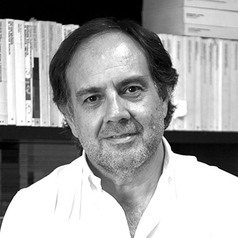
Ismael Crespo Martínez
PhD Candidate in Journalism, Universidad Complutense de Madrid
Ismael Crespo Martínez. Doctor en Ciencias Políticas y Sociología por la Universidad Complutense de Madrid. Catedrático de Ciencia Política y Administración Pública en la Universidad de Murcia y Director del Departamento de Ciencia Política, Antropología Social y Hacienda Pública en esa misma Universidad. Director de Más Poder Local, revista digital sobre comunicación política y comportamiento electoral con foco en España y América Latina. Entre 2012 y 2018, Presidente de ALICE, Asociación Latinoamericana de Investigadores en Campañas Electorales.
Less ![]()
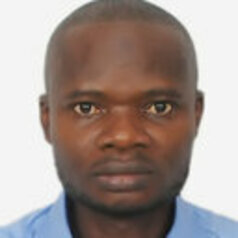
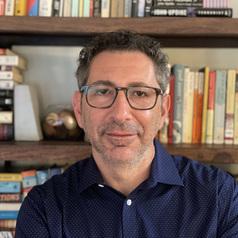
Ismar Volić
Professor of Mathematics, Director of Institute for Mathematics and Democracy, Wellesley College
Ismar Volić is a professor of mathematics at Wellesley College. His research area is algebraic topology. He has written over 30 scientific articles and three books, and has delivered some 300 lectures in over 20 countries. He also interested in the the ways mathematics and politics intersect. He teaches classes in this area and has co-founded the Institute for Mathematics and Democracy.
Less ![]()
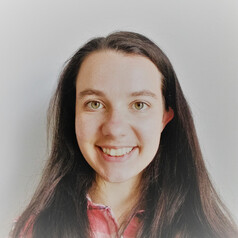
Isobel Cook
PhD candidate in English, University of Sheffield
Current University of Sheffield PhD candidate in the school of English, supervised by Professor Adam Piette. Researching British antinuclear poetry since 1960.
MA Literature, Culture, Media from the University of Lund, Sweden (2019). BA in English, University of York (2017).
Less ![]()
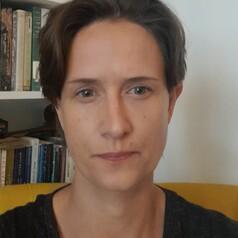
Isobel Elstob
Assistant Professor in Art History, University of Nottingham
I specialise in modern and contemporary art history and theory in Britain and America. I am particularly interested in how the historical past has been visualized by artists working in the 1980s and beyond. My research also often applies analytic models derived from historiography, narratology, and literary theory to its study of the visual arts.
Research interests:
Neo-Victorian studies, with a particular interest in the visual arts
Connections between literary and art theory
Histories of how art and science interact
Contemporary art and memory studies
Modern and contemporary Black art histories
Histories of display
Less ![]()
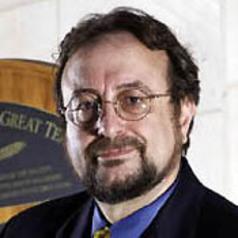
Issam Mudawar
Betty Ruth and Milton B. Hollander Family Professor of Mechanical Engineering, Purdue University
Dr. Mudawar's research interests lie in boiling, condensation, two-phase flow, high heat flux, thermal management systems, cryogenic systems, space vehicles, Lunar and Martian environments, microgravity, experiments on International Space Station and electronic cooling
Less ![]()

Istvan David
Assistant Professor, Computer Science, McMaster University
Istvan David is an Assistant Professor of Computer Science at McMaster University, Canada, where he leads the Sustainable Systems and Methods Lab. His research focuses on sustainable systems engineering, Digital Twins, and automation of model- and simulator inference. Istvan is a seasoned industry professional, having filled multiple management and technical roles in the past decade.
Less ![]()
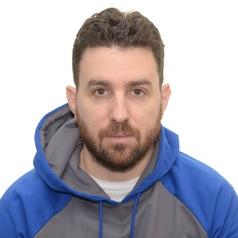
Itai Bavli
Postdoctoral research fellow, Applied Ethics, University of British Columbia
I am currently a BU/UBC Postdoctoral Fellow jointly appointed by the School of Public Health, Boston University (BU) and the Maurice Young Centre for Applied Ethics, at the University of British Columbia (UBC)
Less ![]()
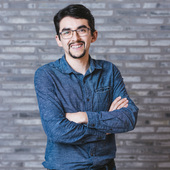
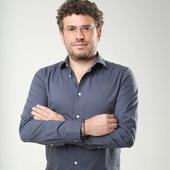
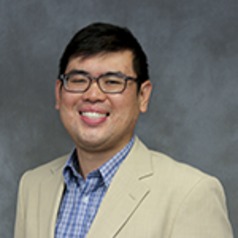
Ivan Gan
Assistant Professor of Communication Studies, University of Houston-Downtown
I earned my Ph.D. from Texas A&M University. Prior to receiving an MA in Organizational Communication, I earned a J.D. from the University of New South Wales and a Graduate Diploma in Legal Practice from the Australian National University. My research areas: Conflict Management in Nursing Teams; Nurses’ Careers and Work Arrangements; Nurse Management and Leadership Communication; and Basic Research on Negotiations.
Less ![]()
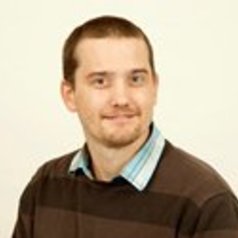
Ivan Haigh
Professor in sea level and flooding, University of Southampton
For the past 20 years I have worked on a wide range of coastal projects in industry and academia, focusing on: (1) assessing changes in mean and extreme sea levels, and associated coastal flooding and erosion; and (2) translating global projections of sea level changes down to local scales to inform risk-based management and policy. I am interested in sea level variations from time scales of minutes, through to long term changes, and have considerable experience in analysing observational data and applying hydrodynamic models.
Less ![]()
- Market Data


















